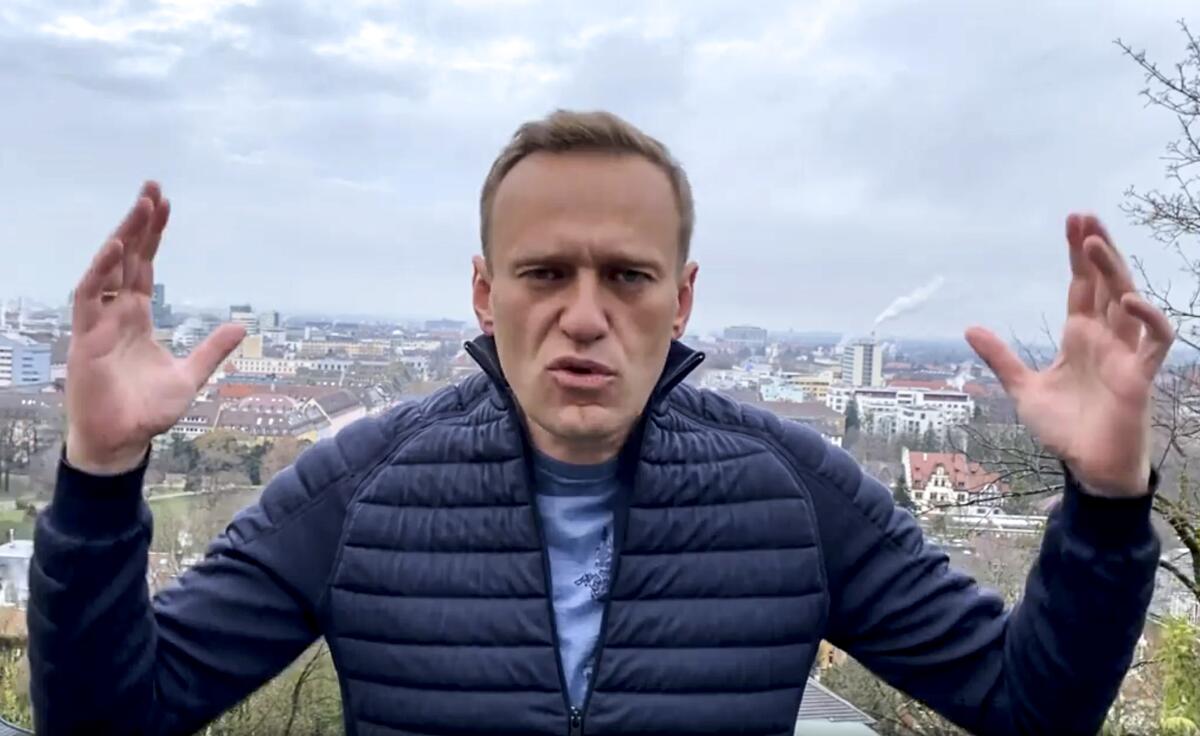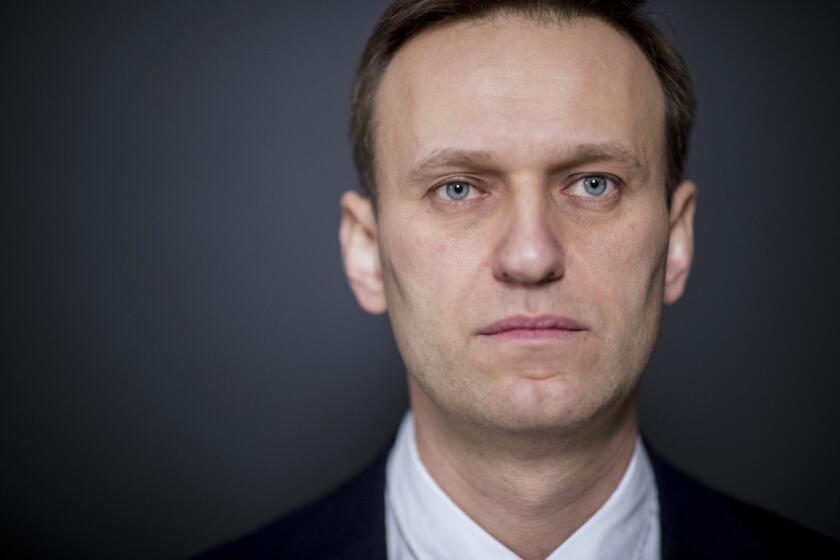After surviving poisoning, Alexei Navalny says he’ll return to Russia despite threats

- Share via
MOSCOW — Top Kremlin critic Alexei Navalny, who has been recovering in Germany from an assassination attempt, says he plans to go home to Russia over the weekend despite authorities’ threats to put him behind bars once again.
Navalny accused Russian President Vladimir Putin of trying to deter him from returning to Russia with new legal maneuvers. Navalny has been recovering from being poisoned in August with a highly toxic nerve agent, an attempt on his life that he has blamed on the Kremlin, which denies any role.
“Putin is stamping his feet demanding to do everything so that I don’t return home,” Navalny said Wednesday in a video posted on his Instagram account. “The people who tried to kill me got offended because I survived, and now they are threatening to put me behind bars.”
He said he would fly home from Germany on Sunday.
At the end of December, Russia’s Federal Penitentiary Service warned Navalny that he faced a prison term if he failed to report immediately to its office in line with the terms of a suspended sentence he received for a 2014 conviction on charges of embezzlement and money-laundering. He has denounced the conviction as politically motivated, and the European Court of Human Rights has ruled that it was unlawful.
In a parallel move just before the new year, Russia’s main investigative agency opened a new criminal case against Navalny related to his alleged mishandling of $5 million in private donations to his Anti-Corruption Foundation and other organizations. Navalny has also dismissed those fraud accusations as crudely fabricated.
The attack on Alexei Navalny — at least the sixth such attempt against a Russian dissident in the last five years — has provoked international condemnation on a scale not seen since the poisoning of former double agent Sergei Skripal.
“They are doing everything to scare me,” Navalny said in his Instagram video. “The only thing left for Putin to do is to put up a giant billboard on top of the Kremlin saying, ‘Alexei, please don’t return home under any circumstances!’”
Navalny fell into a coma while aboard a domestic flight from Siberia to Moscow on Aug. 20. He was transferred from a hospital in Siberia to a Berlin hospital two days later.
Labs in Germany, France and Sweden, and tests by the Organization for the Prohibition of Chemical Weapons, established that he was exposed to a highly toxic Soviet-era nerve agent.
Russian authorities insisted that the doctors who treated Navalny in Siberia before he was airlifted to Germany found no traces of poison, and they have challenged German officials to provide proof of poisoning. They refused to open a full-fledged criminal inquiry, citing a lack of evidence that Navalny was poisoned.
Last month, Navalny released the recording of an undercover phone call he said he made to a man he described as a member of a group of FSB officers who allegedly poisoned him in August and then tried to cover it up. The FSB, Russia’s spy agency, dismissed the recording as fake.
More to Read
Sign up for Essential California
The most important California stories and recommendations in your inbox every morning.
You may occasionally receive promotional content from the Los Angeles Times.











